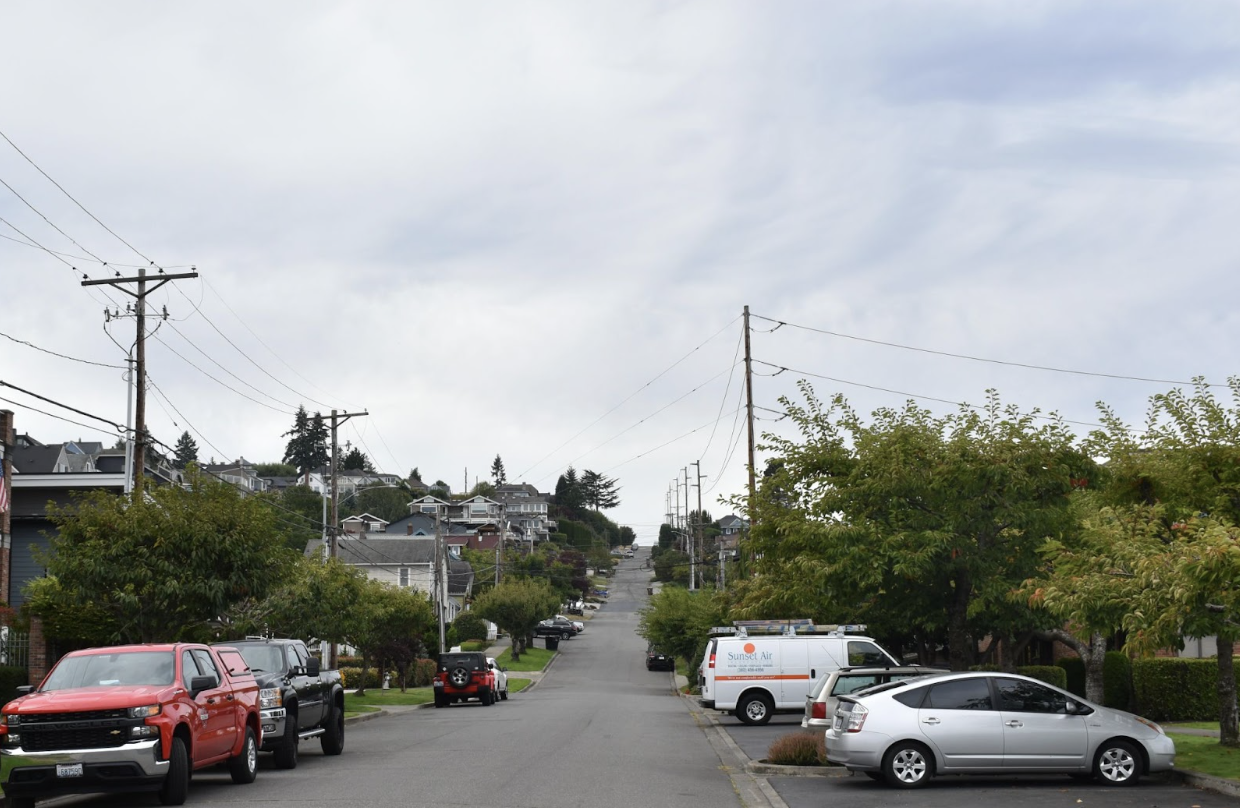
By: Grace Farrell
While the Puget Sound is known for its natural beauty, Tacoma lacks a critical environmental asset many cities enjoy: tree coverage. Only 20% of city land is covered by tree canopy – the least of all Western Washington cities. Trees are crucial for combating climate issues like rising temperatures, air pollution and land erosion, among others.
Tree coverage in Tacoma can also be classified as a social justice issue, since lower-income neighborhoods often have significantly less coverage and are thus more affected by increased temperatures associated with global warming. This becomes even more prevalent if residents lack air-conditioning. Homeless individuals in Tacoma may especially be at risk for health issues associated with this due to prolonged exposure outdoors in heavily industrialized districts lacking tree coverage.
Environmental advocates also note that abundant trees improve the quality of life in neighborhoods due to their aesthetic appeal and health benefits. One such advocate is CHWS nurse Debra Grady, who works with Tacoma Urban Forest Friends (TUFF), a local grassroots organization empowering citizens to encourage the planting and protection of trees in Tacoma communities.
TUFF’s goal is the promotion of environmentalism and social justice through the restoration of Tacoma’s tree canopy, and its operations contribute to a goal set forth several decades ago establishing the 30-by-30 campaign, which aims to see 30% of Tacoma’s land covered by tree canopy by 2030. Progress on this goal hasn’t been on track since its establishment in 1990, but continues to be pushed by environmental advocates like Grady.
Grady discovered TUFF in the summer of 2023 and has since attended City Council meetings to help advocate for a better tree ordinance policy that guarantees protection for older trees at risk of being cut down. She outlines the importance of this ordinance as relating to “historically redlined districts” that have less trees to help with “pollution and water-retention,” among other things. Thanks to members like Grady, that new ordinance passed. It is now outlined in the Tacoma Municipal Code, which deals with issues like conservation of critical ecological areas and relates to an ordinance passed in 2005. Individuals could previously remove trees in areas such as the strip of land between the sidewalk and street. The newly created regulations will limit opportunities for tree-cutting, and can issue fines for non-compliant residents. TUFF is currently working to replicate this policy for private properties as well.
According to Grady, TUFF also encourages planting new trees and overseeing their upkeep. TUFF has been shifting more of its focus toward growth and maintenance since the city’s new ordinance passed. The organization is working to pass regulations on tree-cutting, so that even as trees are removed, new ones are planted to replace them in select instances. Grady says the city should “fund arborist visits” to newly-planted trees to fulfill watering and upkeep responsibilities, especially given that only one in seven seedlings are expected to survive.
TUFF is also pioneering a “Heritage Tree” program where residents can nominate older trees for special protection and acknowledgment by the Tacoma community. Doing so would encourage citizens to prioritize tree health by highlighting the importance of individual trees as withstanding community members; this can also “help to avoid clear-cutting” by promoting general tree preservation, according to Grady. In combination with this, TUFF is also set to launch a public education campaign program this June.
Grady mentions that at the University of Puget Sound student involvement would be particularly beneficial to the organization as it is currently composed of mostly retirees, noting that skills offered by college students are “a great way to get the word out” about the TUFF mission. “We would love to have more participation from college students in the Tacoma area,” she says.
Grady and her colleagues plan to distribute TUFF posters on campus detailing opportunities for student involvement. In the meantime, she encourages students to sign the petition in the CHWS waiting room urging the City Council to implement new tree-planting measures, create the Heritage Tree Program, and more. Meetings are also held every Tuesday afternoon at the Wheelock branch of the Tacoma Public Library and are open for anyone to join.
